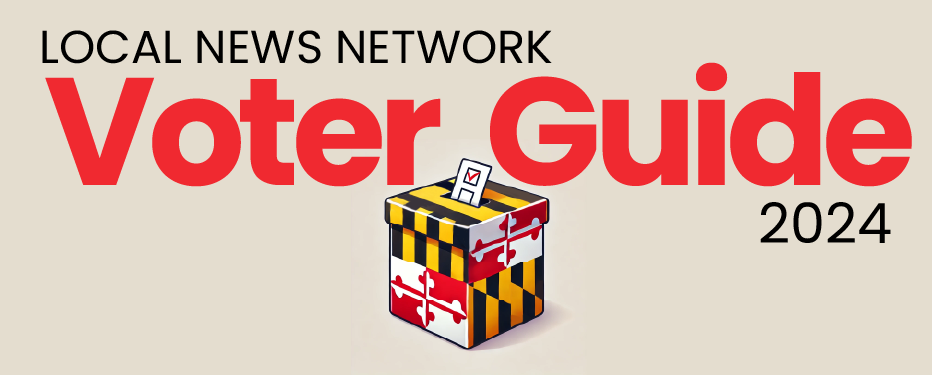Tiffini Andorful
Running for school board in Prince George's County District 1
How old will you be on Election Day (Nov. 5)?
40
Are you currently employed? If so, where, and what is your job title?
Vice president, partnerships at Relay Graduate of Education.
What is the highest level of education that you completed, and where did you get that degree?
Doctorate in cultural and educational policy studies from Loyola University Chicago.
Why are you running for the school board?
I am running for the school board because I believe in the transformative power of education and want to ensure all students have access to its full benefits. As a proud Prince George’s County Public Schools alum, former teacher, education equity advocate and current Prince George’s County Public Schools parent, I understand firsthand the impact that quality resources, great teachers and diverse post-high school pathways have on student success. Now, I’m committed to giving back to the community that shaped me.
I want to listen to the needs of students, teachers and families and work collaboratively to find solutions. By focusing on equity and access, I believe we can ensure that every student, regardless of background, has the opportunity to thrive. Serving on the school board would allow me to continue my lifelong commitment to improving educational outcomes and helping every student access their unique path to success.
What makes you a good candidate for the board?
As a proud alum of Prince George’s County Public Schools, a former teacher and a current Prince George’s County Public Schools parent, I bring a unique and comprehensive perspective to the board. With a proven track record of centering equity in education and authentically engaging with community members, I have consistently worked to build collaborative solutions that address diverse needs. My classroom and academic experience provides me with knowledge and firsthand insight into the educational landscape, while my role as a parent allows me to effectively advocate for students and families. These strengths, combined with my deep personal commitment to Prince George’s County, make me an ideal candidate for the school board.
What is the most important issue facing your school board and what would you do about it if elected?
The most important issue facing the school board is addressing the persistent learning gap across the county. Even years after the pandemic, schools and communities continue to feel its negative effects, especially those in marginalized groups and impoverished communities. If elected, I will collaborate with the board and key stakeholders to advance the implementation of the Blueprint for Maryland's Future. I am committed to supporting the expansion of early childhood education and enhancing services for multilingual learners and families in greatest need. By prioritizing these efforts, we can work toward closing the learning gap and ensuring equitable educational opportunities for all students.
Please name a public leader you admire and explain why.
I most admire Stacey Abrams. In 2018, she became the first Black woman to be a major-gubernatorial nominee in the United States. Although she made history through her pursuit of office, her life’s story is a powerful testament to leadership, community engagement, advocacy and perseverance. As a Black woman also from humble beginnings, I find her journey deeply inspiring. She has broken countless barriers and exemplifies how to show up as your authentic self while championing justice, equality and the empowerment of marginalized communities.
The Blueprint for Maryland’s Future, passed by the General Assembly in 2021, is a 10-year plan that includes increased education funding to support early childhood education, increased teacher starting pay, college/career-readiness standards for high school graduates, and expanded services to multilingual and impoverished families, among other goals. Please tell us your views on the Blueprint and how it will affect your school district.
I fully support the recommendations outlined in the Blueprint for Maryland's Future. I'm especially encouraged by its focus on expanding early childhood education and providing services for multilingual and low-income families. To ensure more positive outcomes for our youth, I believe we must offer consistent, high-quality support to students and their families from an early age. This is particularly important for marginalized communities and multilingual students in my district. I would advocate for increasing family support services, expanding public funding for full-day pre-kindergarten and implementing effective assessments to ensure students are ready for kindergarten. Additionally, I would work to support literacy efforts both in and out of school, including in alternative early learning settings. If elected, I will also push for full funding of Prince George's County’s portion of the Blueprint, as it’s crucial to addressing the needs of our schools and improving their trajectory. This funding is essential for involving key stakeholders and making sure the necessary resources reach our students.
Some school districts nationwide are placing new limits on the use of cellphones in middle and high schools. What do you think should be the policy on student use of cellphones in your district, and why do you support that policy?
I support placing limits on cellphone use in middle and high schools. While I recognize that cellphones are important for student safety, allowing families to communicate with their children during emergencies, they can also be significant distractions in the classroom. Issues like cyberbullying and violence are examples of the negative impacts cellphones can have on student safety and mental health. I think it's worth exploring a policy that stops the use of cellphones during class and designates specific areas for storage.
Are you satisfied with your school district's efforts to ensure the safety of its students? What, if anything, should be done to improve school safety in your district?
While my district and the county have implemented safety measures like enforcing clear book bags and using metal detectors at school entrances, I believe more can be done to improve school safety. Schools should prioritize not only physical safety but also students' social and emotional well-being. This could include increasing the number of support staff and providing access to resources and training to effectively handle conflicts. I also think there should be a greater emphasis on emergency preparedness and increased advocacy for gun control at higher levels. By balancing these areas, building on existing measures, and also beginning to address some of the root causes contributing to violence and unsafe schools, we can create a safer environment for all students in our schools.
Do you think there are circumstances when books should be removed from school libraries? If so, what kind of books should be removed, and who should make those decisions?
I do not support the broad removal of books from school libraries. Books play an important role in helping students learn, understand history and find their place in the world. Reading books that offer diverse perspectives is essential for building critical thinking skills, which are vital to a student’s development both in and out of school. I would only support the removal of books that do not foster this growth, opposing books that present narrow or harmful views of the world. Decisions about which books to include or remove should be made by a diverse group of stakeholders, including students, families, educators and leadership, to ensure that all voices are heard.
Some school districts enact policies allowing transgender and gender nonconforming students to use their preferred pronouns while at the same time not informing those students' parents about that decision. What is your opinion of such policies?
I believe students should be empowered to express themselves and feel safe at school, regardless of how they identify. However, I also recognize the importance of parental involvement, especially for minors. Ideally, parents should be informed about such decisions, with school support staff helping facilitate family communication when needed. Family involvement is critical, but before enforcing any policy, I would ensure that sharing information does not put the student’s safety at risk. It’s essential to balance supporting students’ well-being while maintaining open communication with families in a way that protects all parties involved.


